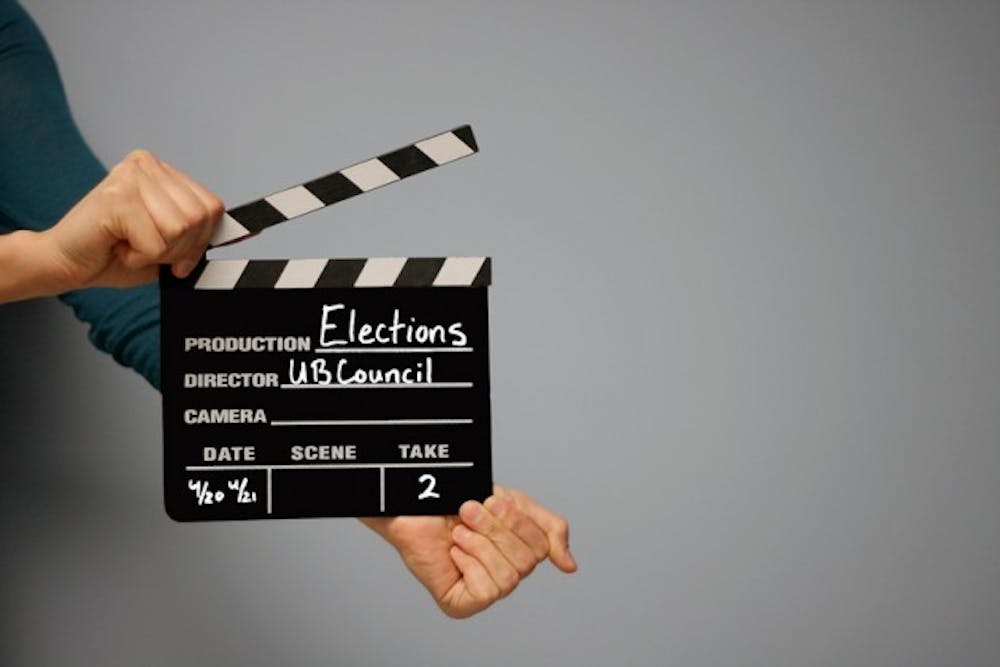Democratic America preaches that every vote counts. Last week's UB Council Student Representative election, however, pointed to the contrary.
From April 6-8, 1,028 students voted online to select who would represent the student body on the UB Council. Although a clear majority was reached, none of the votes will count.
The official results were supposed to be announced on Monday at 5 p.m., but the Council of Student Governments Election Committee reviewed the election and was unable to announce the winner on time. By Tuesday night, the committee determined that one of the candidates was ineligible for office and a re-election was necessary.
Michael Lewis, student activities associate and student government liaison, released a vague statement regarding the issue clouding the original election.
"The first run of the election was determined to be invalid by the election committee, according to the University Council Student Representative Election Rules and Regulations," Lewis said.
Due to student confidentiality policies, Student Life did not provide further information.
According to Election Rules and Regulations, a candidate is eligible if they are "a registered student in good academic standing (as defined by the University Faculty Senate) at the University at Buffalo," and must also be "in good disciplinary standing (through the office of Judicial Affairs) at the University at Buffalo."
Originally, there were four options on the ballot: Joshua Boston, Allen Bourdon, Maaz Memon and Jennifer Tuttle. Next week's ballot, however, will list three candidates: Boston, Bourdon and Tuttle.
Maaz Memon, a senior accounting major, was removed from the election because he was found to be ineligible due to outstanding community service hours. Memon is upset with his expulsion and believes that he deserves to be the student representative.
"I won by 410 votes," Memon said. "It was a landslide victory, which shows the student voice. I was elected to represent all of the students. It was their voice and they wanted me to be on the board."
According to Memon, he was originally accused of campaigning in restricted areas.
"Both of the complaints [against me] were not valid," Memon said. "Even if I was doing an illegal campaign, I would [have gotten] 24 hours of community service. I wouldn't be expelled from the election."
After the accusations of illegal campaigning were filed, the election committee discovered that Memon was never eligible to run in the first place. They didn't, however, find him guilty of campaigning in "polling places."
Memon is less concerned with the allegations brought against him and is more worried that the people running the election don't want to see him in office.
"When I submitted my petition, Student Life approved it," Memon said. "Why didn't they [discover this] before starting the election? It seems like they don't want me to win the election."
The re-election is scheduled to take place next week on April 20 and 21. Memon has appealed his ineligibility and hopes to re-enter the election.
This isn't the first time that UB has had a problem with the UB Council Student Representative election. In 2007, Ilia Nossov and Creighton Randall were each accused of violating election policies. Nossov campaigned in "polling places," and Randall illegally hung posters on walls.
Although there is no supervision at the polls and candidates can't be strictly supervised, many students still prefer voting online.
"I think the online [election] was better [than an in-person ballot]," said Safia Musse, a senior health and human services major. "There wasn't all of the pressure of people around you, it's just you [voting on your own]."
But maybe the online election wasn't completely pressure free.
"I wasn't even aware that there was an election going on," Musse said. "I was sitting at a computer in the library and one of the candidates came over and told me to vote for him."
The rules and regulations vaguely define where a candidate can and cannot campaign. The official document states that no candidate may "campaign within the area designated as the polling place," but, since the election is run online, there is no distinct polling area.
Re-voting may be a nuisance for some, but others are glad the committee is trying to correct its mistake.
"Since they are redoing [the election] because they found a problem with the original integrity of the election, this strengthened [the process] because [the committee] shows that they take it seriously," said Chloe Lake, a sophomore communication and psychology major.
Lake, however, wasn't surprised that the committee ran into a problem and isn't entirely impressed with the process.
"Because this was [an] online [election], this may have been predicted," Lake said. "Maybe it wasn't a good idea to have it online in the first place just to prevent these types of situations."
Think the election processes at UB work? Think they are completely flawed? Let us know.
E-mail: news@ubspectrum.com





